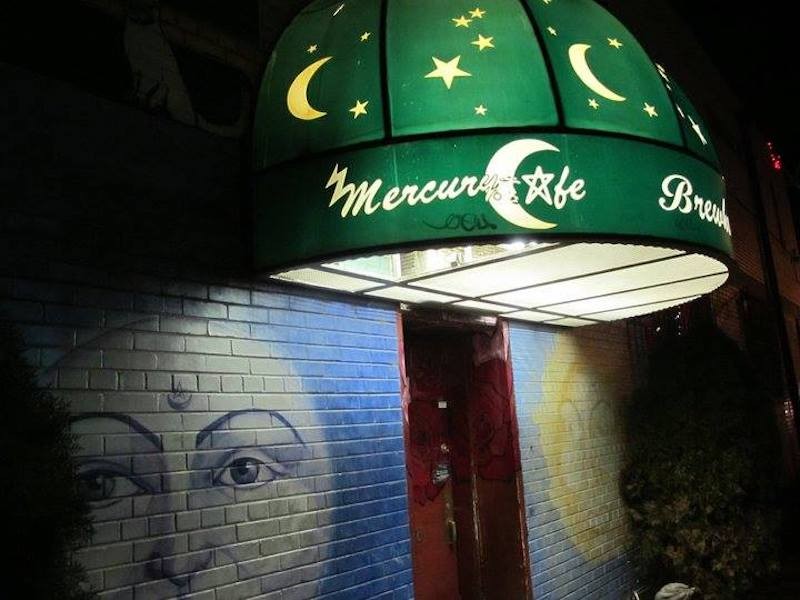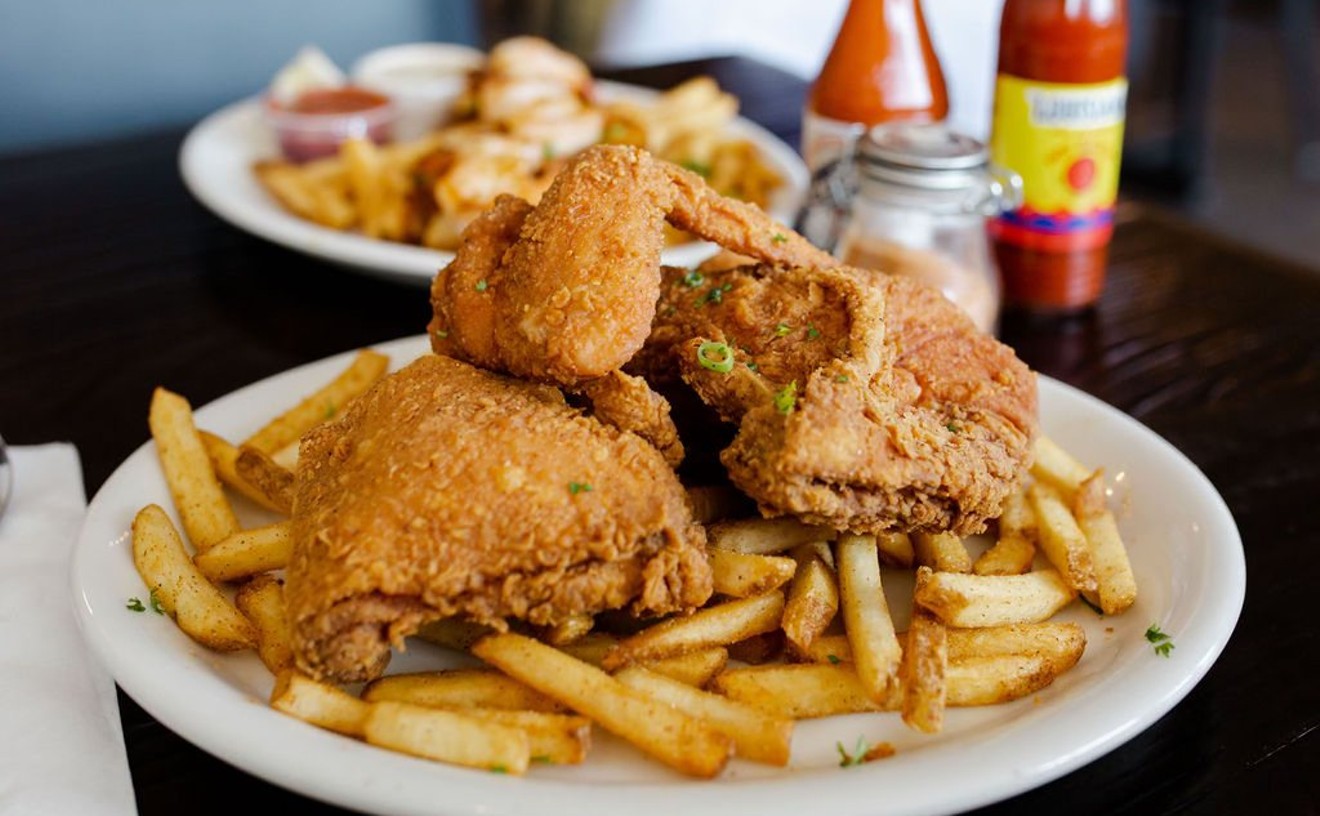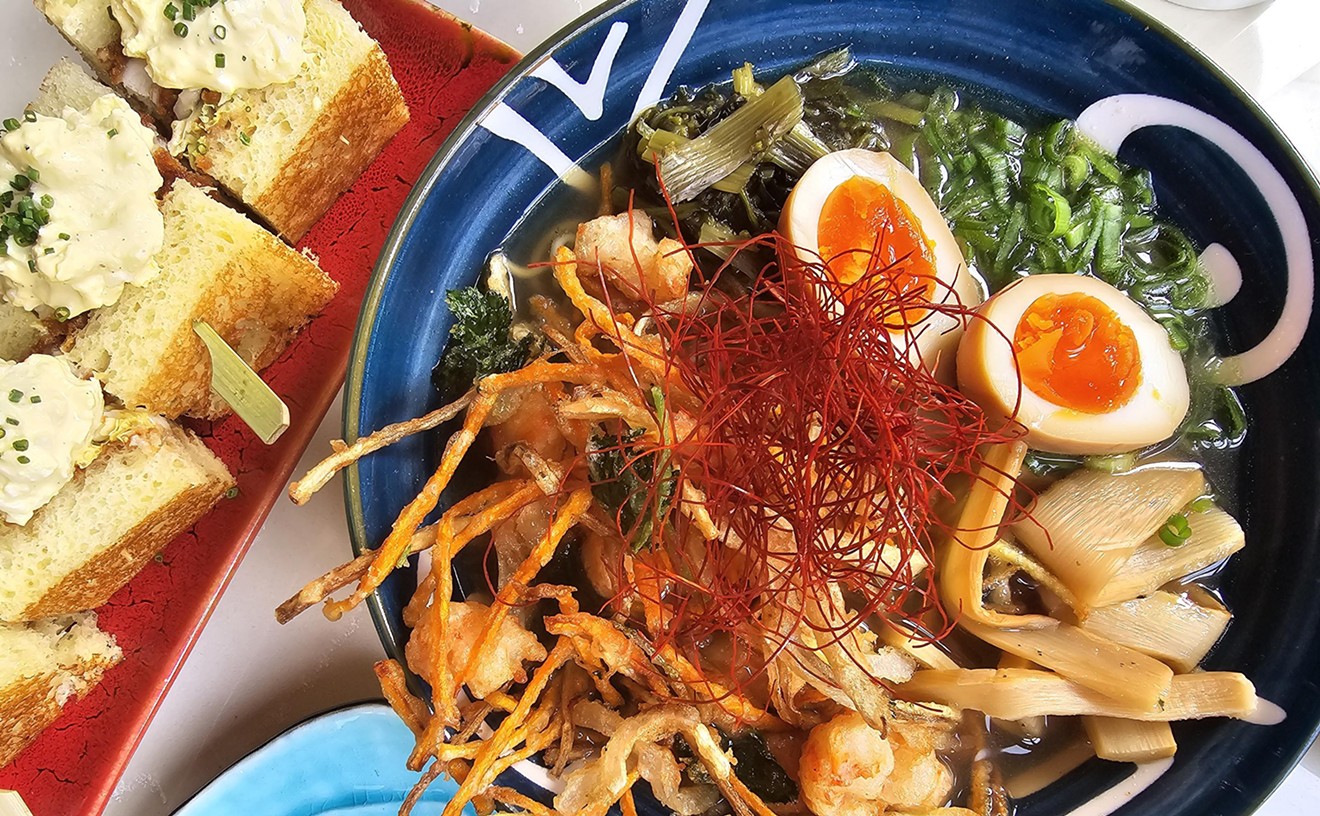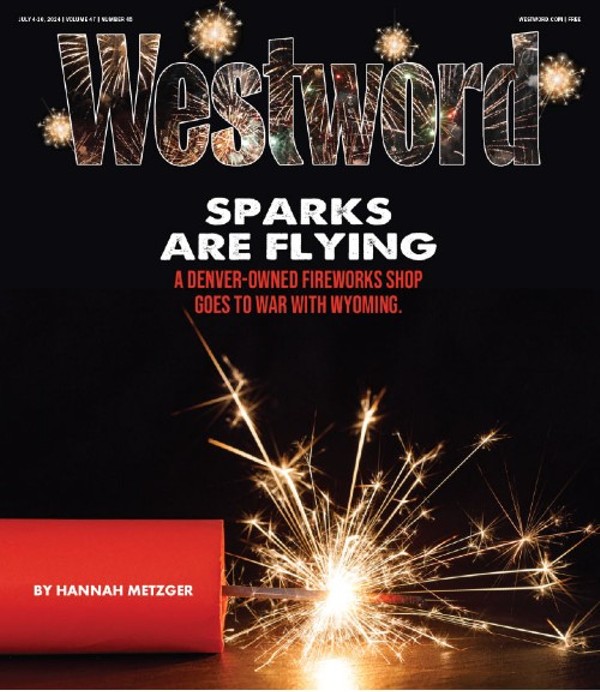The Merc's longtime head chef, Jeff Massingill, is set to retire on July 30 — and Anna McGee, who has been a server and barista there since late January, says she learned on July 14 that the kitchen will close when Chef Jeff retires, leaving back-of-house staff and servers with fewer hours and shared shifts until further notice.
Workers were already concerned about the current status of the Mercury. In fact, McGee and her colleague, server and baker Katie Rayne, have been working over the past six weeks to form a union.
"Communication there is like a trickle-down game of telephone," McGee says, noting that management didn't directly inform all employees of the changes that will accompany the chef's retirement. "Later that night, our general manager, Cassidy, was talking to Katie and told Katie directly they planned to get rid of the server positions and to spread people out amongst the bartenders, the barista and a host. But then she told Katie to start looking for new jobs on Indeed."
Mercury Cafe co-owner and proprietor Danny Newman was more straightforward In announcing Chef Jeff's imminent retirement to the public. "We owe a tremendous debt of gratitude to Chef Jeff for his outstanding contributions to The Mercury Cafe," Newman said in a release. "His artistry in the kitchen has brought joy and delight to countless individuals, and we wish him a fulfilling retirement.”
After he departs, Newman added, the Mercury will be looking for a "fresh culinary direction," and is inviting applications for this venture where "culinary talents can flourish, new flavors can be discovered, and innovate concepts can take flight."
And in the meantime, "we're in limbo right now," he admits, though he says he's already been talking to a few like-minded people who might be interested in taking over the kitchen.
The kitchen changes and a unionization effort are just the latest challenges for the Merc's new owners, who bought the place in 2021 so that Megenity could retire and know that her beloved venue could continue to serve the community. The Merc "brings in less money than it costs to operate," says Newman, "but we've got the hope to kind of keep pushing it forward."
Growing up in Denver, Newman frequented the Merc, where he regularly attended poetry readings and theater and dance performances. An entrepreneur, he organized his family's purchase of My Brother's Bar from the Karagas family in 2017 (his mother had worked at that Denver landmark for three decades). After seeing that the Merc was for sale in 2021, Newman, wife Christy Kruzick and business partner Austin Gayer took the plunge and bought it. "It's one of those things that holds so much of my past, and I just feel like it's such a special, important part of Denver and the community," Newman explains. "I was like, okay, let's see if we can figure something out, figure out how to save this place."
Rayne has been working at the Mercury since August 2021, joining the staff a month after Newman, Kruzick and Gayer closed the deal. She recalls that transition period as a bleak stretch when the cafe was understaffed and understocked. "It was really a rough, rough start," she says. "Over the winter there was a point where we had...no one in the kitchen. And the waitstaff was making paninis and chips, and like that was it, trying to serve that to people."
While the situation has improved over the years, McGee and Rayne thinks it could get better still.
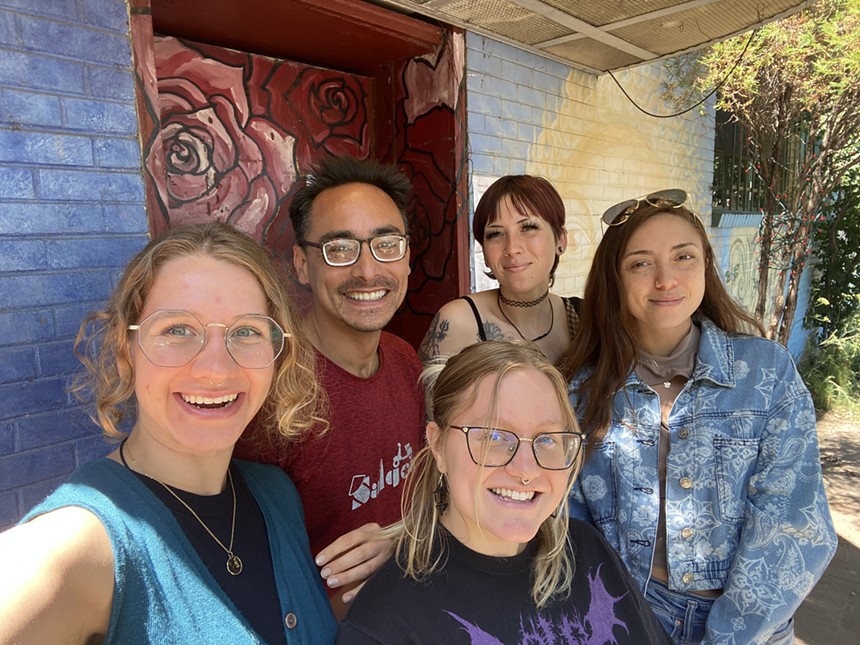
Mercury Cafe employees and union members Katie Rayne, Anna McGee, Philip Tran, Sydney Cordova and Natalie Whit
Anna McGee
McGee first brought up the idea of unionizing on June 8, and Rayne joined her in pushing it with fellow employees; they say they did so out of love for the historic spot. The Merc "isn't an exceptional place of mistreatment," McGee says. "It definitely is not, but there have been concerns floating around, and I thought it was time to start a conversation." Those conversations included a discussion of staff burnout and a lack of communication between staffers, management and the owners.
"There's a general attitude in the restaurant industry of, 'If you're unhappy, just find a new job,'" McGee explains. "But this feels like a place that will not settle for that attitude. It is a place with spirit and heart, and we really wanted to advocate for ourselves...and we actually started a petition that night."
McGee and Rayne spent the next month holding meetings, gathering a list of negotiable demands and collecting signatures on a petition that asks for a say in cafe decisions, livable wages of at least $21 an hour before tips, an exploration of possible health benefits, regularly scheduled shifts, scheduling priority based on longest employment, and safety training for all staff.
Safety is a major concern; the building at 2199 California that Megenity bought in 1990 as the final home for the Mercury Cafe is now at the heart of many of the city's homeless services, including a large housing unit whose construction she had opposed. Newman calls it "an unfortunately interesting neighborhood."
After an incident in which an individual threatened employees and stole a knife set and personal items belonging to the kitchen staff, Newman purchased tasers and Mace, stocking them at the bartender and barista counters. "That was super unsettling for many of us, if not all of us, feeling unsafe and at risk of liability, at risk of injuring anyone and having to escalate a situation into violence, honestly," McGee says.
Newman points out that the increased security protocols were driven by staff concerns. He followed that by hiring off-duty police officers as security guards. The officers, at a going rate of $90 an hour, are a costly expense for an already struggling venue. "The staff was at wit's end and encouraged the need for officers, so we made that move immediately," Newman says.
But the move didn't satisfy all the workers; those pushing for the union are advocating for an emphasis on safety, overdose and de-escalation training instead. "It just, for one, sucks and is not fair to not consult your workers, people who are there daily and putting their livelihoods in this environment...to not be a part of the decision-making when it comes to safety," McGee says.
"The space is a very queer, people of color space," Rayne adds. "And so to see a uniformed cop as the first thing you do when you walk in the door, it actually makes the space feel unsafe, just because of the history of violence against people of color."
They sent the petition to Newman on July 7, asking for recognition of the new union; Newman says the email went to spam and he didn't see the petition until after it was posted online. He responded by calling for a staff meeting on July 12. At that gathering, Newman agreed to reduce or eliminate the officers, cutting that hefty expense from the Merc's budget. He also asked his employees to further outline the demands in their petition so that he could educate himself before deciding on the next step.
"I think a good chunk of what they're requesting is already enshrined in the city and state labor laws that we obviously already adhere to," he says, referring to requests for paid overtime, sick leave and earned time off. As for health insurance and other suggestions that don't involve legal requirements, he adds, "As soon as we can turn the business around, we can look at things beyond just the basics."
The meeting left McGee and Rayne with a spark of hope. "We actually group-hugged at the end," McGee says. "It was really precious, because we are all like, damn, we really want the same thing. And I think there was a lot of humanity that was revealed. That's what I walked away with — a sense of humanity and hope."
Still, in light of the changes coming after Massingill's retirement, the Mercury Cafe workers sent an email to Newman on July 17, giving him a deadline of July 18 for a response to their request for a union. "It's unclear what [his] answer is going to be. He said he needed time to do research, talk to some connections, some lawyers, etc.," McGee says. If he chooses not to recognize a union at this time, she and Rayne have already set a unionizing election date of August 22.
In the meantime, McGee and Rayne are emphasizing the importance of community support for the Mercury Cafe. "It's a really beautiful place to come and express yourself. And we really want to highlight that and highlight how amazing it is and how great of a little venue it is," McGee says. "We believe in the spirit and the heart and the future of this place...and so far we've been heard. And most importantly, we've been heard by Danny, the owner himself, and that feels promising and good."
Today's sudden deadline came as a surprise to Newman. "I have been spending countless hours educating myself on unions, etc., while continuing to try to make the Merc's ends meet. Threats of retaliation are not motivating," he says. Still, he wants the Merc's employees to know that "I was (am) so excited that after more than two years of trying to 'rally the team,' you all stepped up, and it got me excited that we can actually save this place.
"Let's do it."

